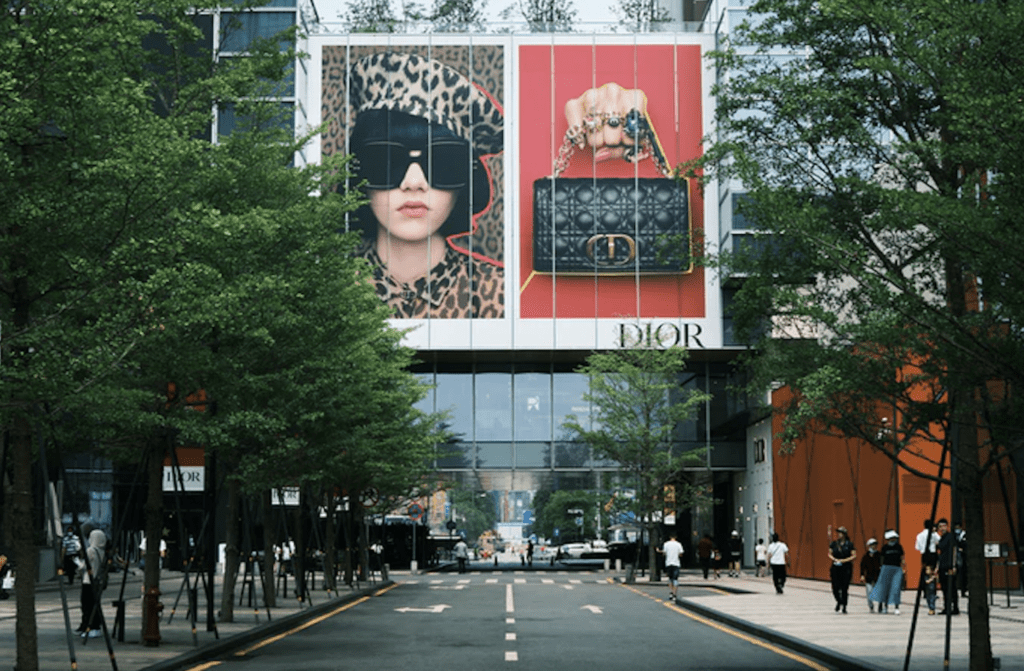Shein appeared to be preparing last year to make its public market debut on the New York Stock Exchange (“NYSE”), reportedly filing to go public in the U.S. exchange in November, according to familiar with the matter. But having met some opposition from U.S. politicians, including Senator Marco Rubio, the ultra fast fashion brand has now reportedly turned its attention to London. While this would be a boost for the London Stock Exchange (“LSE”), which has lost several organizations to other international exchanges over the last five years, it raises the question of why Shein was not successful with its application to the NYSE.
Since its launch in China in 2008, Shein has gained a significant global market share in online fast fashion. It found success accelerating the already lucrative fast-fashion business model to become an ultra-fast fashion retailer. And the fact that Shein nabbed the title of the second most popular fashion retailer for Gen Z consumers in the U.S. is unsurprising given that it offers up as many as 10,000 new garments on its e-commerce site every day – at significantly lower prices than those being sold by fast-fashion competitors like Zara and H&M.
Yet, the strategies that have enabled Shein’s international expansion are now likely hindering its ability to successfully list on the NYSE. The low cost of fast fashion in general has long been linked to potential labor exploitation, and the precariousness of outsourcing fashion production to the cheapest supplier within a global supply chain was evident during the pandemic. And as awareness of unethical and unsustainable practices in the wider apparel/fashion industry grows, activists may yet have the power to disrupt Shein’s growth.
Swiss NGO Public Eye, for instance, recently reported on alleged exploitation at factories said to be used by Shein, which recently issued a comprehensive response saying it has made “extensive progress” in improving conditions in its factories. In the U.S., Rubio introduced a law in 2021 that aims to block imports of products tied to Chinese Uyghur slave labor and has since called on the U.S. Department of Homeland Security to investigate Shein and fellow Chinese low-price retailer Temu to determine if their goods fall foul of the law.
Climate Emergency
At the same time, the U.S. is going further in regulating the fashion industry. In New York, the Fashion Sustainability and Social Accountability Act will, if passed, mandate that fashion and footwear brands with more than $100 million in revenue map 50 percent of their supply chains to ensure transparency. They will also have to develop plans to reduce their social and environmental impact.
Similarly, in 2019 the European Parliament declared a climate emergency, and the European Commission responded by developing the European Green Deal. This includes planned legislation forcing the fashion industry to address sustainability issues, meaning that by 2030 fashion and textiles will have to become more durable, repairable and recyclable. Businesses will also need to have strategies in place from the design process through to the end of life to maximize resources and avoid contributing to landfill.
And still yet, French politicians are also “legislating to limit the excesses of ultra-fast fashion,” with a surcharge from 2025 of €5 per item, rising to €10 by 2030. This is recognition that ultra-fast and fast fashion does not only exploit labor, but also the environment. In being seen as disposable, fast fashion has been shown to encourage constant consumption.
Rising Scrutiny for Fast Fashion
While listing on the LSE could improve Shein’s respectability and its profits, it could backfire for the brand in the long term. The company could become more visible to a wider audience and with more understanding of sustainability and business practices that contribute to the climate emergency, activists could begin targeting shareholders and other organizations and people with connections to the company. There is precedent for this – activists who targeted museums and galleries over their sponsorship from energy companies, as well as campus protests in the U.S. and Europe calling for universities to divest from Israeli companies over its war in Gaza.
This trend of publicly criticizing brands for their exploitative or unethical practices has been levied at fast fashion retailers on social media for years. In particular, influencers who promote “fashion hauls” have been criticized for encouraging unsustainable fashion consumption.
The fashion industry may appear to be unfairly scrutinized for failing to address sustainability. After all, it is hardly the only industry that damages the environment. But the scrutiny appears to be valid; the United Nations now believes that the fashion industry is the second largest polluter in the world. Moreover, as an industry it makes an overt display of its cheap prices and rapid turnover, with marketing tactics touting “last chance to buy” or “low in stock,” along with discounts that encourage frequent impulsive purchases. Our research has found that fast fashion marketing on social media is “in your face” and encourages mindless consumption of clothing that often languishes in wardrobes with the tags still on.
Fast-fashion retailers frequently make sustainability claims to alleviate consumer “eco-guilt,” which are often ambiguous and cannot be readily substantiated. But fast and ultra-fast fashion can never be sustainable due to the speed of turnover and items that are often binned after one wear. So, although the marketing entices customers through social media, the messages consumers see as they scroll are increasingly competing with stories of activism and protests about fast fashion’s harmful effects.
As moves to regulate the fast-fashion industry spread to more regions, the effects will almost certainly affect the profits of those in the sector. A London listing for Shein might be a shot in the arm for the LSE, but it could spell trouble for the retailer as it finds itself – and its practices – under increasing scrutiny.
Shein declined to comment on this article.
Elaine Ritch is a Reader in Fashion, Marketing and Sustainability at Glasgow Caledonian University. (This article was initially published by The Conversation.)











